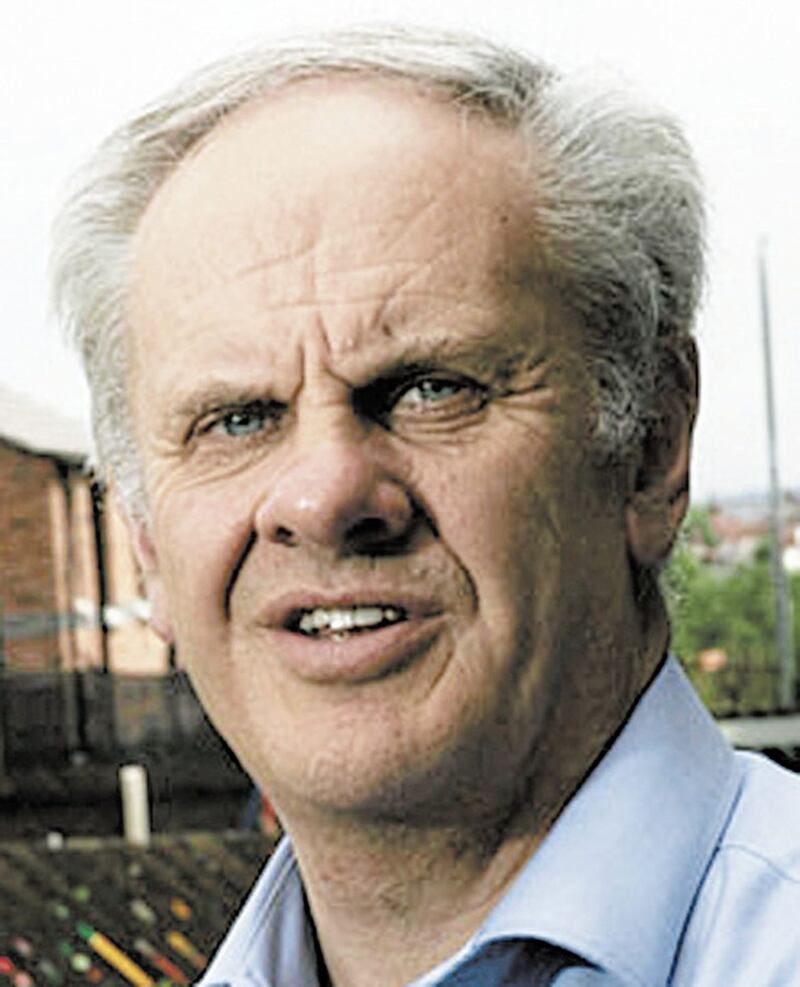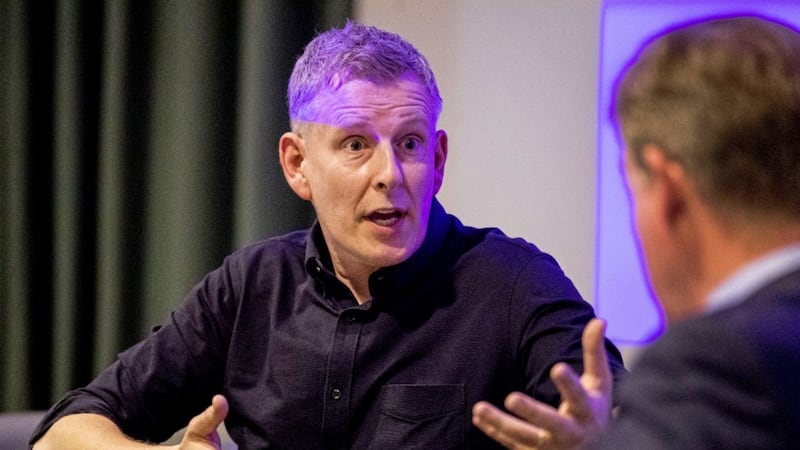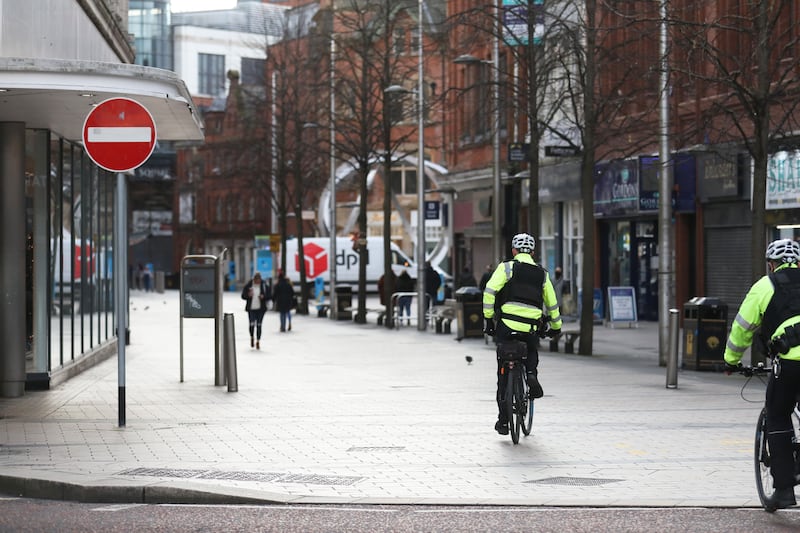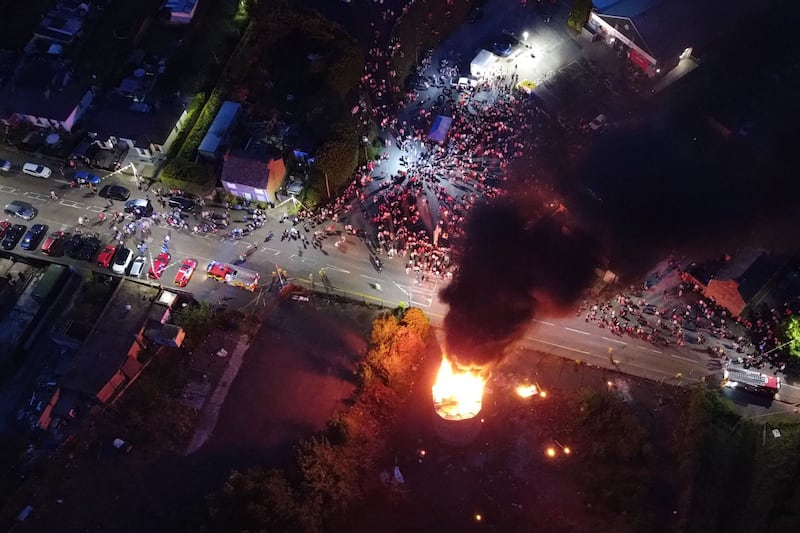"SECTARIANISM remains a significant challenge for our society and is likely to remain so for some time."
This eye-catching headline from a recent research paper by Prof Duncan Morrow of the Ulster University is hardly a surprise, but it is a deeply troubling one more than 20 years after the signing of the Belfast Agreement.
In the 50 pages of what is, by any standards, a very significant report, there are more than 50 recommendations.
For the first time in recent memory there are working descriptions of both sectarianism and reconciliation - something that our local assembly, as well as the London and Dublin governments have all singularly failed to offer, even though they talk a lot about these issues from time to time.
The report describes sectarianism largely in terms of a "struggle for power in which both religion and politics have played a consistent part" and that it is "widely used to describe the wider division". It also makes the rather chilling comment that "We were raised in a society where sectarianism was 'built into' normality".
In a memorable interview at the conference launching the report, Patrick Kielty followed through on this "new normality" by his comment that there is "the casual sectarianism of habit".
Day in, day out, the opinions we have, the words we say, the decisions we make are often shaped by long-term habits, and continue to be expressed without much thought on our part.
Yet, if we were to stop and take stock, we would see that there is often an underlying mistrust and fear of both people and places on the 'other' side, and an avoidance of contact and relationship-building.
So division and separation continue as 'normal'.
The definition of reconciliation in the report is weak... It sets the bar very low, since it puts almost no importance on the rebuilding of broken relationships, or even the need to acknowledge wrongdoing during the Northern Ireland conflict
Breaking into this cycle is a huge challenge, for as Senator George Mitchell said in his keynote address, the "poison of mistrust" is common to all conflicts and that "we will repair our buildings long before we repair our souls".
The research paper emphasises the role of the education sector in helping all our young people to understand that they belong together with others of different backgrounds.
This is a direct and major challenge to both the Department of Education and the Education Authority.
It is also a direct call to the Churches to focus on how to make this happen in the many schools in which they are so heavily involved.
The definition of reconciliation in the research paper is weak - "a general willingness on the part of people throughout the community to tolerate and respect the rights of other law abiding people to hold views at variance from those which they hold themselves".
This sets the bar very low, since it puts almost no importance on the rebuilding of broken relationships, or even the need to acknowledge wrongdoing during the Northern Ireland conflict.
It is very possible to tolerate and respect the rights and views of other people in a 'relationship-free zone' with separation from them still very much in place.
It is hard to avoid the harsh reality that real reconciliation must think through how to restore relationships with those who have been - and still are - grieving and traumatised.
The Ulster University report shows, beyond any doubt, just how little there is to celebrate in our version of 'normality'
The main body of the report is a 26-page mini-encyclopaedia full of deep insight and analysis on the scale and effect of sectarianism on many sectors of society such as education, business, policing and politics.
It shows, beyond any doubt, just how little there is to celebrate in our version of 'normality'.
The analysis is followed by a further 11 pages of conclusions and recommendations embracing the whole community.
Some are straightforward - such as the call for all the universities to ensure that all trainee PE teachers try different sports at university.
This recommendation comes against the backdrop of a finding that after university, most teachers go back to their traditional sport in schools.
Other recommendations are much more demanding, such as those relating to the business community.
Some are very controversial - the most high profile being a new government department with ongoing responsibility to tackle sectarianism.
As a 'churchman', my reaction to the recommendations for the Church sector is that they are simply not challenging enough, given that the suggested definition of sectarianism is "a struggle for power in which both religion and politics have played a consistent part...".
I am far from convinced that the Churches have the structures in place to effect the necessary change at local parish and community level where both sectarianism and reconciliation must be addressed.
One possible starting point is for local councils to facilitate inter-church panels at diocesan and area level, with every member of the clergy and their church leadership teams being invited to contribute their own analysis of the type and scale of sectarianism in their locality, along with practical steps to help improve the atmosphere and local relationships.
This is absolutely not to be confused with ecumenical activity, which often has a focus on joint worship.
Rather, it is an outworking of the Bible's call to find new ways of loving your neighbour as yourself, following on from a commitment to Christ.
Alongside this, it would be a modern expression of the prophet Jeremiah's call in the Old Testament to seek the welfare of the people around us.
The report is clear that its purpose is to "seek opportunities for change towards a much less divided society, where partnership and collaboration are normal and friendship is routine".
Here is a clear vision of the future, that surely all of us can willingly embrace.
Prof Morrow is a hugely respected academic and civic leader in our society. Along with people like Fr Martin Magill, might we be seeing a new team of thinkers emerge in the providence of God?
Very possibly - but they need to be both heard, and actively supported.
Dr Norman Hamilton is a former moderator of the Presbyterian Church in Ireland and is a board member of the Community Relations Council








